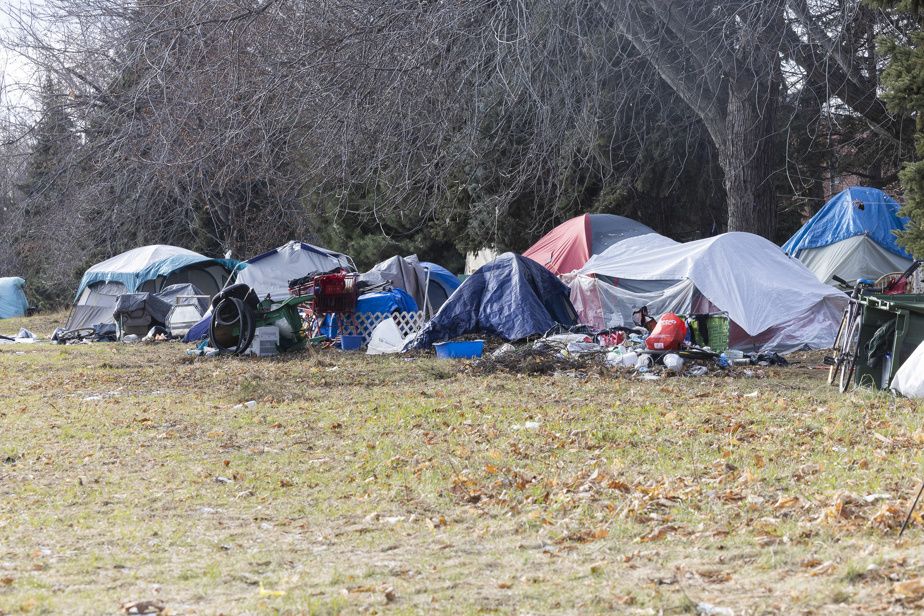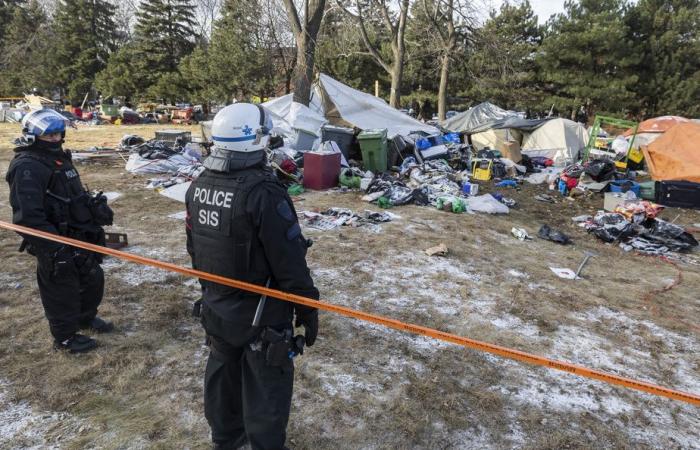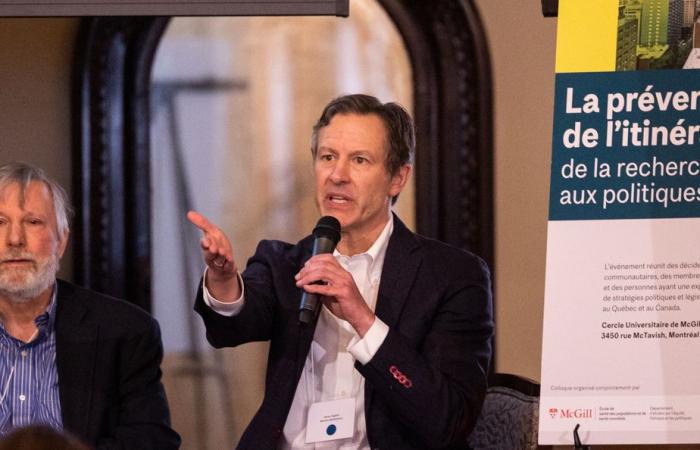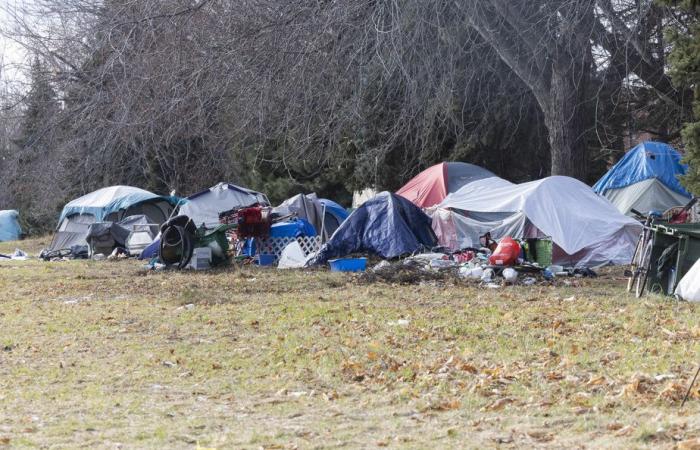The City of Montreal must better supervise its interventions in homeless encampments and avoid dismantling them as long as there is a lack of support and accommodation resources, according to the report of a committee formed to propose possible solutions. to the homelessness crisis.
Published at 5:00 a.m.
While people are living in tents in various places, the City must “put in place a protocol to support people, assess the dangerousness of occupying a public space, avoid dismantling and supervise them when necessary,” indicates the summary of the report, submitted to the administration last month, that The Press got.
The committee’s discussions, which brought together representatives of several community organizations, in addition to City employees and experts from the health and social services network, made it possible to determine 15 possible solutions to act more effectively with the itinerant population. But the approach to the camps is still divisive.
“Various members of the committee consider that the dismantling should stop and actions should be put in place to house more people this winter, and offer support services to those who live in tents (e.g.: tents adapted and heated, sleeping bags, food and sanitary services, etc.)”, we can read in the introduction to the report.
The dismantling has long been criticized by organizations helping the homeless, who particularly deplore the varying approaches from one district to another.
The City of Montreal does not have, like other Canadian cities, an official protocol, accessible to the public, on intervention with unhoused people and campers. This situation leaves room for interpretation, with unequal practices.
Extract from the committee’s report on possible solutions to the homelessness crisis
The dismantling increases the insecurity and vulnerability of the homeless who had found refuge in a tent, we recall.
“These people need to know what the rules of the game are. They have rights. It’s because they have nowhere else to live in tents in the park, not because they like it,” notes Old Brewery Mission general manager James Hughes, who was part of the committee.
Tolerance
According to Mr. Hughes, municipal officials called to intervene in the encampments need clear guidelines to assess different situations and know where to find the appropriate resources.
PHOTO DOMINICK GRAVEL, ARCHIVES LA PRESSE
Old Brewery Mission CEO James Hughes at a symposium on homelessness, 2023
In some cases, violence and crime require intervention, but there should be tolerance when people come together to help and protect each other, he said.
They need psychosocial workers rather than garbage trucks. The authorities must work with their hearts and good judgment, and tolerate certain individuals in parks and elsewhere in public spaces, since there are not enough places in the network.
-James Hughes, General Manager of the Old Brewery Mission
The City is already working to determine a clear protocol on the camps, so that there is “a unique form of intervention in all the districts, that it is not variable in geometry, and above all that it is known,” reveals the responsible for homelessness on the executive committee, Robert Beaudry.
But this protocol remains “based on the ban”, he adds. Tolerance of encampments in certain circumstances is not one of the approaches considered, since the municipal administration considers that living in a tent is not a safe and permanent solution.

PHOTO PATRICK SANFAÇON, LA PRESSE ARCHIVES
Homeless camp at the corner of Notre-Dame and Letourneux streets, last December
In the Ville-Marie district, which Mr. Beaudry represents, “we have been working for several months to refine our approach to have a human approach, to bring people back into the continuum of services and ensure we have links with the network,” he said.
No immediate solution
But currently, what should a homeless person do who cannot find a place in existing resources, since they are full every evening and have to turn away dozens of people in need? Mr. Beaudry did not answer this question.
He mentions the initiatives initiated by the City, such as the installation of 60 places in modular housing, planned for this spring, without being able to specify what the homeless can do while waiting for them to open.
“In the meantime, we are urgently opening cold weather shelters and we are putting all the necessary energy into having more resources,” he insists. We cannot give up and say that an encampment is going to be a permanent measure, because there are fires, exploitation and other risks for the people who live there. »
As polar cold weather is forecast these days, the City will once again open emergency shelter centers, the councilor mentions.
Among its 15 possible solutions, the committee calls for an increase in emergency accommodation places, which must be offered all year round rather than only in winter, more transitional housing with support, which must be better adapted to needs of people coming off the street, and more funding for hiring community workers.
Health services must also be provided in shelters, according to the committee, to deal with complex cases, such as intoxicated people at risk of overdose and those suffering from mental health problems.
Several recommendations emphasize better coordination of interventions with homeless people living outside or in camps, between community, municipal and government authorities.
“People who wish to take steps to return to housing or access services are faced with several requirements. In the case of people who no longer use services and sleep in public spaces, these steps are difficult to carry out. We must meet them in their living environment,” underlines the report, which is addressed as much to the City of Montreal as to the government of Quebec, which is responsible for the fight against homelessness.








